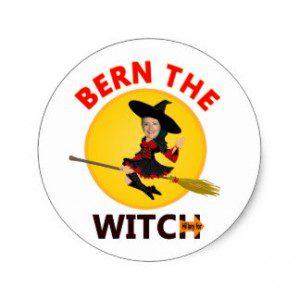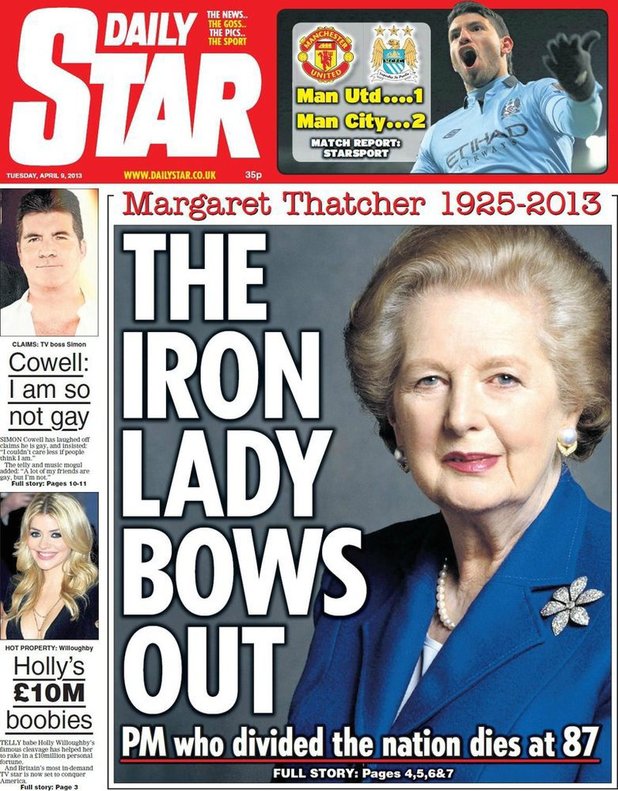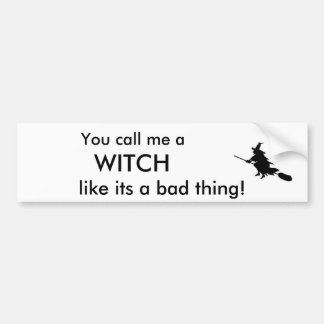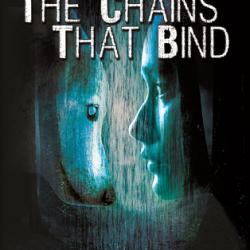As a Canadian, I’ve been watching the U.S. Presidential Primaries with increasing interest (and horrified fascination) while a 21st century Mussolini has become the Republican front runner, and in the meantime someone who might become the first female U.S. President faces off against a dedicated democratic socialist named Bernie Sanders for the Democratic nomination. It’s grown even more fascinating since it has become increasingly apparent how utterly biased the American mainstream media is. Really instructional, actually. It continues to astound and disgust me to be shown again and again that the media sure doesn’t want Sanders to win the nomination. It’s so apparent that it inspired me to write this article at Gods & Radicals.
 So I went to check my Patheos site, as I do every couple of days or so. And I saw this article by Eric DuPree, about the horrible misogyny implicit in the hashtag #BerntheWitch. And when I was researching the article you’re reading, I found this piece by Heather Greene on The Wild Hunt. This was a bit of a surprise to me. I’m sure a lot of the witches who have been using it would be surprised to hear that it’s being interpreted as misogyny. S.J. Tucker (who, for those who are not aware, is a female, decidedly progressive, fairly well-known American Pagan filk musician) has been Tweeting stuff with #BerntheWitch as a hashtag for months. I didn’t even know what it was about at first as a Canadian, but when I learned more about Bernie Sanders and the U.S. Presidential Primaries I figured out that it was a rallying tag to encourage Pagans to vote for Sanders, liberally laced with a fair bit of characteristic Pagan self-deprecating punny humour. Most of those posts, by the way, didn’t mention Clinton at all.
So I went to check my Patheos site, as I do every couple of days or so. And I saw this article by Eric DuPree, about the horrible misogyny implicit in the hashtag #BerntheWitch. And when I was researching the article you’re reading, I found this piece by Heather Greene on The Wild Hunt. This was a bit of a surprise to me. I’m sure a lot of the witches who have been using it would be surprised to hear that it’s being interpreted as misogyny. S.J. Tucker (who, for those who are not aware, is a female, decidedly progressive, fairly well-known American Pagan filk musician) has been Tweeting stuff with #BerntheWitch as a hashtag for months. I didn’t even know what it was about at first as a Canadian, but when I learned more about Bernie Sanders and the U.S. Presidential Primaries I figured out that it was a rallying tag to encourage Pagans to vote for Sanders, liberally laced with a fair bit of characteristic Pagan self-deprecating punny humour. Most of those posts, by the way, didn’t mention Clinton at all.

Sounds like someone has seized on the negative image of witches in the media, again, to me. Isn’t anyone else irritated by this? Unfortunately, now that it’s been co-opted to this purpose, of course the Pagan community can’t use it anymore. And actually, when I searched the tag, I didn’t see anything related to misogyny at all in its usage on Twitter, other than tweets from the people who are saying that it proves that Sanders is a misogynist.
Though I certainly see why the event listing that pissed everyone off could be interpreted this way and if that’s not what the fool who posted it intended, he sure wasn’t thinking it through. And I think his interview makes it clear what he intended. Of course this is offensive and horribly inappropriate, and I think that the charges of at least subconscious misogyny against this guy are certainly valid. But instead it’s become a weird way to try to discredit the whole Sanders campaign. Since when is a potential Presidential candidate responsible for one jerk who happens to support him? And what happened when the campaign had their attention drawn to the incident? They took down the event listing and issued a statement.
 But let’s face it; Clinton’s campaign is going to seize on cries of sexism to discredit her opponents if they can. Of course they are. I would. They tried it when she faced off against President Obama too, when they created the hashtag #Obamaboys. The reason why it resonates is because there really is systemic misogyny. We all know it (except the backlashers). Much of it isn’t even conscious; it just presents itself in the unconscious assumptions made about our behaviour and actions based on gender. But we can’t chalk up every form of opposition and disagreement against anyone who happens to be a woman as misogyny. That discredits our whole cause and takes the teeth out of our arguments when we need it.
But let’s face it; Clinton’s campaign is going to seize on cries of sexism to discredit her opponents if they can. Of course they are. I would. They tried it when she faced off against President Obama too, when they created the hashtag #Obamaboys. The reason why it resonates is because there really is systemic misogyny. We all know it (except the backlashers). Much of it isn’t even conscious; it just presents itself in the unconscious assumptions made about our behaviour and actions based on gender. But we can’t chalk up every form of opposition and disagreement against anyone who happens to be a woman as misogyny. That discredits our whole cause and takes the teeth out of our arguments when we need it.
It’s a matter of context. For instance, let’s consider the context of the comparable situation that Eric DuPree referred to in his article: British Parliament chanting, “The lady doth protest too much!” at Prime Minister Margaret Thatcher.
I’m sure you’re aware the line comes from Hamlet. You may not be an English Lit nerd like me, so you may not remember that it comes from a scene in which Hamlet has staged a play to satirize his mother, Queen Gertrude, to call her out for her “incestuous” relationship and a possible role in the previous King’s death. He asks her if she likes the play. And in response, she says dryly of her satirized character, “The lady doth protest too much.”
Now, something else you may not be aware of is that British (and Canadian) Parliament have different rules and customs than the American Congress. One of those rules is that you may not outright call anyone else in the House a liar.
The first time this phrase from Hamlet was used in relation to Prime Minister Thatcher was when she was being questioned in regards to the sale of the British publicly-owned automotive company Leyland-Rover to foreign investors; a deal that had been sweetened by 38 million pounds of taxpayer money. Basically it was a now-familiar story (at least here in Canada) of a corrupt politician making backroom deals to sell off public resources to large corporations in return for kickbacks. When she refused to answer the direct question, and instead spouted off a bunch of figures in justification, the response of the Member of Parliament questioning her was, “Methinks the lady doth protest too much,” and a demand to answer the question. She still refused to answer the question, even when directed to by the Speaker of the House, and it eventually resulted in a significant portion of the House getting up and bellowing, “Answer!”
 And something you probably don’t know is that when Margaret Thatcher ran for the Conservative Party nomination in 1980, she said of herself, “The lady’s not for turning,” speaking of her ability to stay the course. Which was a reference to a well-known play, “The Lady’s Not for Burning,” which, ironically, was a romantic comedy, consciously written in imitation of Shakespeare, in which an accused witch wanted to avoid execution. And from that point on, she was known popularly as “the Iron Lady.” That was her epithet. I read a biography about her once that was entitled that.
And something you probably don’t know is that when Margaret Thatcher ran for the Conservative Party nomination in 1980, she said of herself, “The lady’s not for turning,” speaking of her ability to stay the course. Which was a reference to a well-known play, “The Lady’s Not for Burning,” which, ironically, was a romantic comedy, consciously written in imitation of Shakespeare, in which an accused witch wanted to avoid execution. And from that point on, she was known popularly as “the Iron Lady.” That was her epithet. I read a biography about her once that was entitled that.
So when Parliament started chanting, “The lady doth protest too much” at Prime Minister Thatcher, it was a statement that she was being deliberately obtuse and denying something which was perfectly obvious to everyone else in the room. In other words, they were flat-out calling her a liar. Would it have worked as well if she were Matthew Thatcher? Of course not. But in context it was perfectly appropriate, and had little, if anything, to do with sexism.
So, regarding the #BerntheWitch hashtag. There is a cultural element to using the word “witch” as a synonym for “bitch” to avoid profanity, which absolutely is a misogynistic insult. But was it meant that way when it started? I’m sure S.J. Tucker never meant it that way. I doubt that any Pagan means it that way. Unless they don’t like witches. Wouldn’t that be the pot calling the kettle black?
It’s Heather Greene’s job to report on witch-related stuff that goes on in the media. And Eric DuPree is sincere; and I want to thank him for that from the bottom of my heart. We need more feminists who happen to be men, and I’m so glad that this brother-in-arms is my ally in the fight. But I think that context is important, and it’s a good object lesson for us all. It’s hard in our busy lives not to fall victim to the temptation of skimming our Twitter newsfeed for the headlines and believing we know what’s going on. People who want to influence what we think (and let’s face it; isn’t that what politics is all about?) know that, and they take advantage of it. We need to look at all sides of an issue, and consider context, before we can be said to be properly informed. Thankfully, we live in an age when we have all the power to do this at our fingertips; if we’re willing to use it!

Like Between the Shadows on Facebook and never miss a post!












